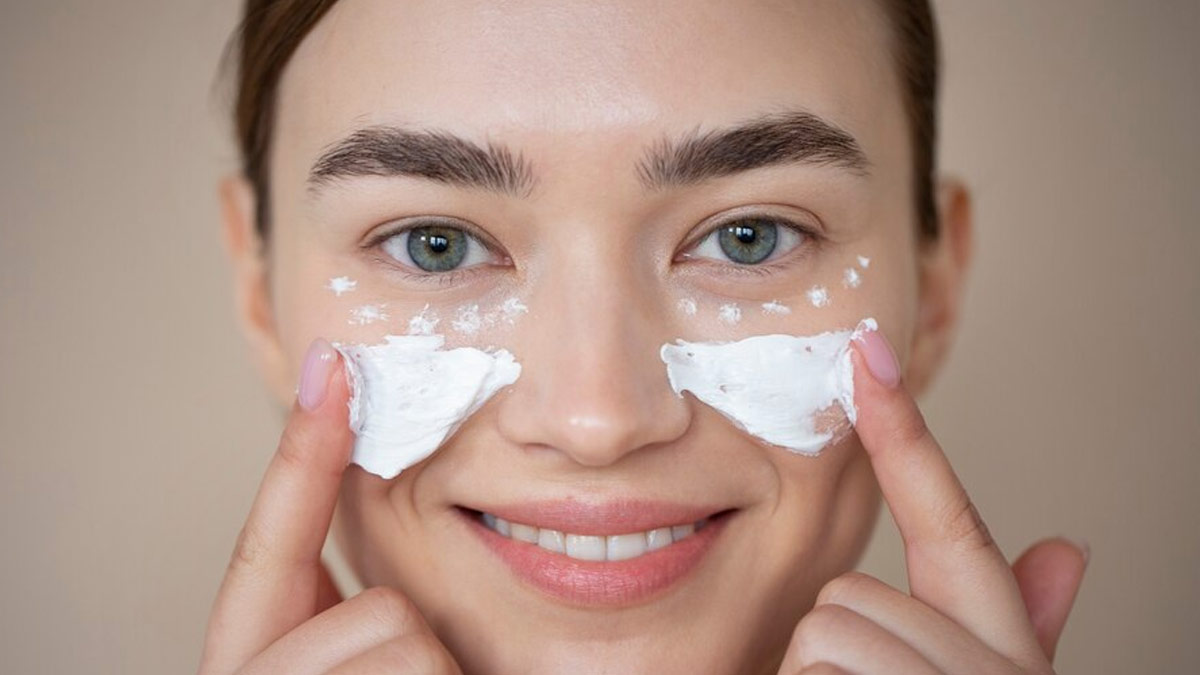
Did you know that milk cream, also known as malai, can be beneficial for your skin? It is a high-fat dairy product that can be beneficial for the skin due to its moisturising properties. The fat content helps to hydrate and soften the skin, while the lactic acid acts as a gentle exfoliant, removing dead skin cells and promoting a smoother complexion. By using milk cream in homemade face masks, moisturisers, or cleansers, you can naturally achieve healthy and radiant skin.
Table of Content:-
Benefits Of Milk Cream For Skin Health

Moisturising Properties
If you are dealing with dry skin, milk cream should be your go-to option. Its rich fatty acid content helps to hydrate the skin deeply, making it an effective remedy for dry skin. Applying milk cream to your face and body regularly can help maintain optimal skin hydration, leaving your skin soft, supple, and radiant.
Soothing Effect on Skin Rashes
Skin rashes, whether triggered by allergies, irritants, or other factors, can be uncomfortable and unattractive. Milk cream has soothing properties that can help reduce itching and irritation associated with skin rashes. Its gentle and nourishing nature makes it appropriate for sensitive skin, providing relief and aiding in the healing process.
Also Read: Skincare According To Age: Expert Answers What To Use At What Age?

Reducing Redness and Inflammation
Redness and inflammation are frequent skin issues that can occur due to factors like acne, sunburn, or sensitive skin. Milk cream has lactic acid and according to a 2018 study, it can help in removing dead skin cells and promoting new cell growth. Not only this, its anti-inflammatory properties can soothe irritated skin, resulting in a more even-toned and radiant appearance.
Anti-Ageing Benefits
You may have noticed a loss of moisture, elasticity, and firmness as you age. Milk cream is packed with vitamins and nutrients that can help combat signs of ageing and promote youthful-looking skin. Its antioxidant content helps neutralise free radicals, which are known to accelerate the ageing process. Applying milk cream regularly can help improve skin texture, minimise fine lines and wrinkles, and impart a youthful glow.
Also Read: Is Anti-Pollution Skincare Effective? Expert Unravels The Truth
Natural Skin Cleanser
Milk cream can also be used as a gentle and effective natural cleanser for the skin. Its emollient properties help to dissolve dirt, impurities, and makeup while nourishing the skin. Massaging milk cream onto the skin in circular motions helps to lift away debris and unclog pores, leaving the skin clean, refreshed, and revitalised.
Healing Properties
Did you know milk cream is beneficial for treating minor cuts, wounds, and abrasions? Its moisturising and nourishing properties create a protective barrier over the skin, allowing it to heal more effectively. Applying milk cream to affected areas can help soothe irritation, reduce inflammation, and promote faster healing.
Brightening and Lightening Effect
If you have dull, lacklustre skin or hyperpigmentation issues, milk cream can provide a natural solution. Its lactic acid content helps gently exfoliate the skin, revealing a brighter, more radiant complexion. According to a 2017 research, milk cream serves as a calming skin toner, enhancing skin tone and imparting an immediate healthy radiance. Also, it stands as one of the top home remedies for diminishing dark circles and under-eye bags. Regular use of milk cream can fade dark spots, blemishes, and uneven skin tone, resulting in a smoother and more glowing appearance.
[Disclaimer: This article contains information for informational purposes only, hence, we advise you to consult your expert if you notice any skin issues to get the necessary treatment.]
Also watch this video
How we keep this article up to date:
We work with experts and keep a close eye on the latest in health and wellness. Whenever there is a new research or helpful information, we update our articles with accurate and useful advice.
Current Version